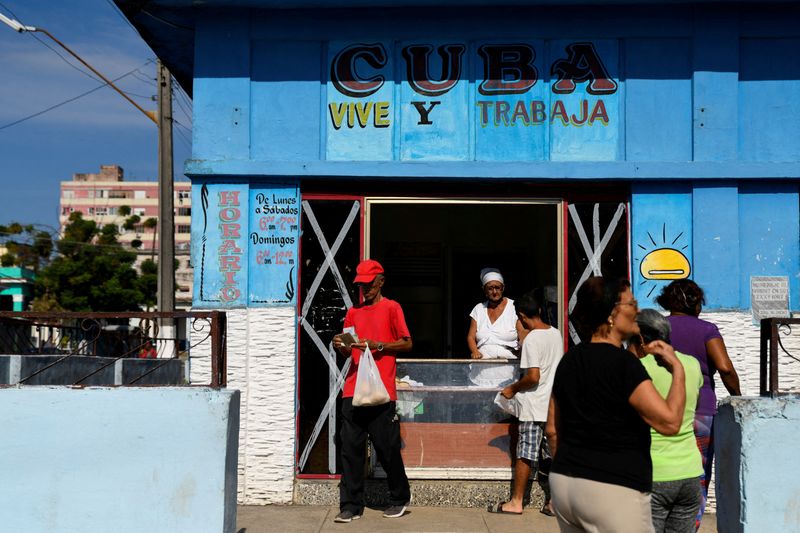HAVANA (Reuters) - Cuba's top leadership said its plan to help recover the communist-run island's bankrupt economy is advancing, but too slowly, according to a report in state-run media, as millions of Cubans remain without water, electricity, or both.
Cuba is suffering an unprecedented economic crisis. In the last month, the government has said more than one million people - around 10% of its population - are without running water. The majority of the population endures several hours of blackouts each day. Food, fuel and medicine shortages are nearly universal.
Cuban economy minister Joaquin Alonso late on Sunday told the Council of Ministers - the country's top executive body - that "the government plan to correct distortions and revive the economy is a process that is advancing, but not at the speed we want," Cuba's Granma, the communist party newspaper, reported.
Since July, the government has implemented several measures it says should help ease the pain on consumers and turn around the country's economy, capping prices on popular goods, slashing budgets to rein in a runaway fiscal deficit and reforming rules on private businesses to boost the tax haul, among others.
Top officials said belt-tightening measures have led to smaller deficit growth than anticipated in 2024, but Prime Minister Manuel Marrero said in the meeting that despite "discrete advances" the average Cuban was still hurting.
"They have not yet reached the family economy, but they are beginning to organize some elements," Marrero said.
Cuba blames the Cold War-era U.S. trade embargo and the COVID-19 pandemic for crippling tourism and domestic industry, wiping out the cash it needs to import basic goods.

But top officials have also recognized that internal bureaucracy and inefficiencies in its state-run model also contribute to the crisis.
More than one million Cubans have left the Caribbean island since 2020, a record-breaking exodus that has contributed to a crisis at the U.S. border.